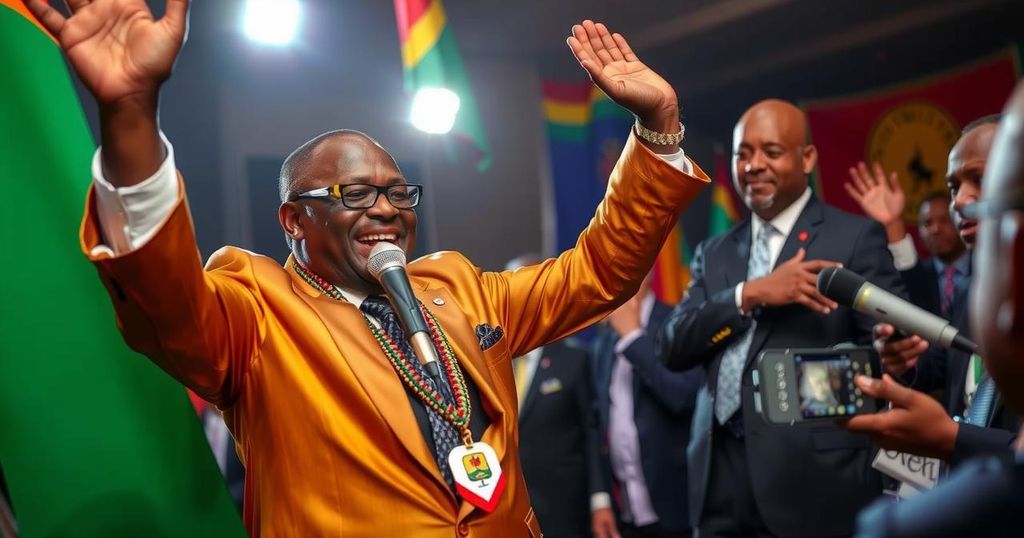Namibia’s Vice-President Netumbo Nandi-Ndaitwah Wins Controversial Election

Namibia’s Vice-President Netumbo Nandi-Ndaitwah has won the presidential election with 57.31% of the vote. Despite the victory, the main opposition, IPC, disputes the results, citing irregularities. This election saw extensive delays due to logistical issues, with some voters waiting up to 12 hours to cast their ballots. Nandi-Ndaitwah becomes the first woman president of Namibia since independence.
The recent presidential elections in Namibia have concluded with Vice-President Netumbo Nandi-Ndaitwah from the ruling SWAPO party securing victory with 57.31 percent of the total votes, as announced by the election commission. Nandi-Ndaitwah, now the first woman to govern the country since its independence in 1990, surpassed her main competitor, Panduleni Itula of the opposition Independent Patriots for Change (IPC), who garnered 25.5 percent of the vote. However, the IPC has expressed intentions to contest the results, citing significant irregularities throughout the electoral process.
The elections held on November 27 experienced numerous delays due to logistical challenges, including a severe shortage of ballot papers, leading to overcrowded polling stations and some voters waiting for over 12 hours on the first day. These issues have compounded the IPC’s allegations regarding the election’s legitimacy, further complicating Namibia’s political landscape post-election.
Nandi-Ndaitwah’s candidacy marks a significant milestone for women in Namibian politics as she breaks longstanding gender barriers in a country rich in mineral resources and politically dominated by SWAPO since 1990. The electoral outcome, while celebrated by some, has cast a shadow of controversy as the IPC’s disapproval echoes throughout the political discourse, raising concerns about the democratic process in Namibia.
The political context of Namibia’s 2023 presidential elections is notably complex, as the ruling SWAPO party has maintained control since the country’s liberation from colonial rule. The electoral framework has witnessed criticism over the years, particularly regarding transparency and fairness. The IPC, formed more recently as a response to perceived shortcomings of the traditional political players, has mobilized support from voters seeking change. The elections were marked by logistical issues that not only inconvenienced voters but also fueled allegations of undue influence and lack of preparedness by the electoral authorities. Thus, the 2023 election results come under scrutiny amidst a backdrop of historical governance issues and emerging opposition sentiment.
In summation, Vice-President Netumbo Nandi-Ndaitwah’s election as Namibia’s president represents a pivotal moment in the nation’s political history, highlighting both progress in gender representation and the ongoing challenges of election integrity. The IPC’s refusal to accept the results signals a troubling debate over the state of democracy in Namibia, suggesting that the implications of this election could resonate far beyond the immediate political ramifications, possibly influencing future electoral reforms and civic engagement among Namibians. How these dynamics unfold remains to be seen, yet they underscore the critical nature of transparent electoral practices in a democratic society.
Original Source: www.barrons.com








